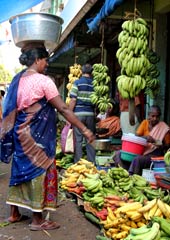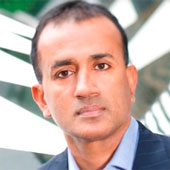A World Community in Denial
How do you say to billions of Asians and Africans that they cannot have it all because the economic model of the West is flawed?
January 31, 2012

The world continues to operate under a fundamentally flawed economic system based on false constructs of promoting relentless consumption. Even worse, it relies on the systematic under-pricing of resources. This, in turn, has resulted in vested interests seeking to hollow out the legitimate and vital role of the state, which is to protect the commons and thereby the rights of the non-business majority.
The “growth is forever” school seeks to maintain its mantra of invincibility via its main beneficiaries and is perpetuated by a whole industry of so-called thought leaders, from business schools to economists and even political leaders. And as long as it did deliver, it remained seductive.
The rest of the world — accustomed to viewing the dominant Western nations, because of their developmental advantage, as the fountain of all economic knowledge and ideas on human progress and governance — timidly accepted this orthodoxy. In many ways, there was no choice. Asian and African countries willingly adopted the Western economic model in the post-colonial era to “catch up” with the train of globalization and the economic performance of developed nations.
Leaders of developing nations, many of whom went to the best schools in the West, by and large came back with only one set of ideas — that of the Western economic model and its political structures. The importation of Western ideas continues to this day. This is especially so with regard to economics and the established Western narrative about the compact between globalization, free markets, capitalism and democracy.
As my own continent, Asia, has grown, businesses, governments and the media there have promoted unfettered economic growth as the ultimate answer to the region’s most pressing issues. They did so, however, with complete disregard for the catastrophic outcome of having five billion Asians aspire to consume like Americans. They have perpetuated the notion that innovation in technology, free markets and finance will solve all global challenges, including sustainability and resources scarcity.
Political and business leaders preach that developing countries can “manufacture their way out of poverty” by tying themselves to the consumption paradigm of the global economy. What goes unmentioned is that this strategy primarily serves the interest of the West. The Washington Consensus, for example, advocates broad trade liberalization through privatization and increasing foreign direct investment (along with other structural adjustment strategies) as a “first stage policy reform” for developing countries to boost growth.
Let me be clear: These ideas were not formulated in the capitals of China, India, Indonesia, Brazil or Nigeria. There is an increasing awareness in these nations of the need for achieving sustainable growth over the long term.
The science on this matter is very clear: The world’s collective consumption rate is pushing our planet to the brink of ruin. Since the 20th century, the world embarked on a three-decade growth spurt, expanding its economy eightfold. The world’s population hit the seven billion mark in 2011 and is expected to reach ten billion before the end of the century (according to UN projections). Various reports suggest that in the next two decades, the resource intensity required to produce one unit of GDP will need to be reduced by 50% to 80% for a global population of 10 billion people to have a sustainable future.
Against this background of resource constraints, the Chinese, Indians, Indonesians and Africans — who together account for just over half of the world’s population — are now seeking to join the world community as economic equals. They are encouraged to aspire to live like those in the West. In my view, that is, at best, a naïve undertaking. The catastrophic consequences of billions of new Western-style consumers is something that economists, politicians and governments of most developed nations are only now starting to come to terms with.
Yet, at the heart of the West’s state of denial is this question: How do you say to these billions that they cannot have it all because the much-vaunted economic model of the West is fundamentally flawed?
We should have a much more honest discussion. Asians and Africans need to stop believing that “their time has come” and that they will now write the new rules of the world economy. Perhaps so, but not without fundamentally changing it. Triumphalism over the West’s current woes must stop and be replaced by a realistic understanding that unless the governments in these nations change course, their own legitimacy will be challenged by growing social unrest.
The ultimate answer will require a redrawing of the entire notion of how we create human progress in an era of resource scarcity — and thereby also a redefinition of rights.
Editor’s note: This essay was adapted from the author’s presentation at the 2011 Salzburg Trilogue. Hosted by the Bertelsmann Stiftung in Germany, the Salzburg Trilogue facilitates international cultural dialogue by bringing together recognized public figures to consider matters of global importance.
Takeaways
Asian and African countries willingly adopted the Western economic model in the post-colonial era to "catch up" with the train of globalization.
Leaders of developing nations went to the best schools in the West and brought back the Western economic model and its political structures.
Asia has promoted economic growth with complete disregard for the catastrophic outcome of having five billion Asians aspire to consume like Americans.
